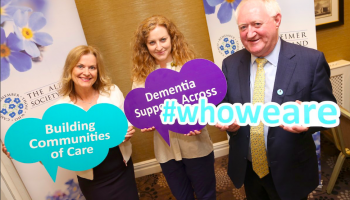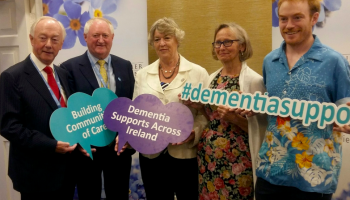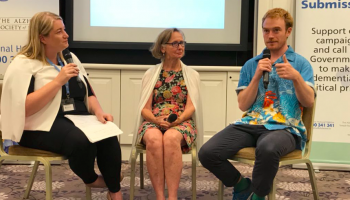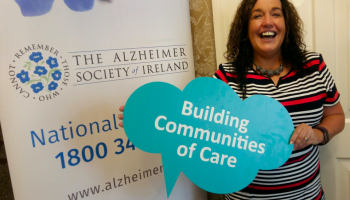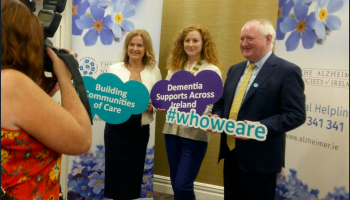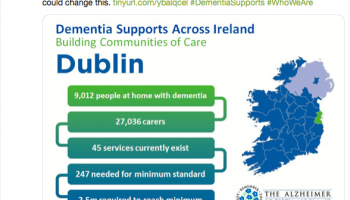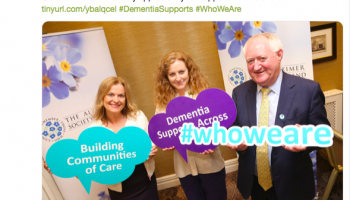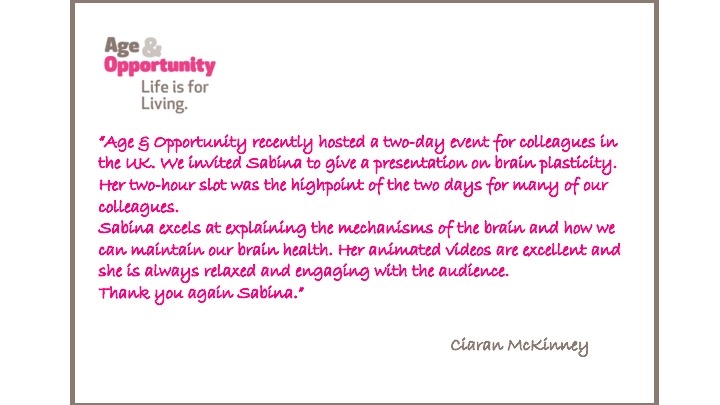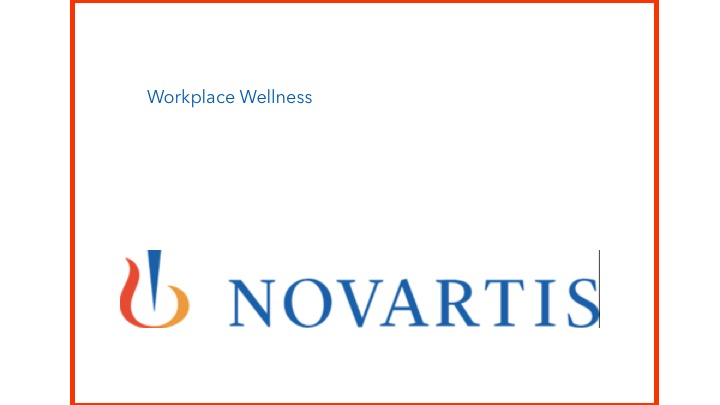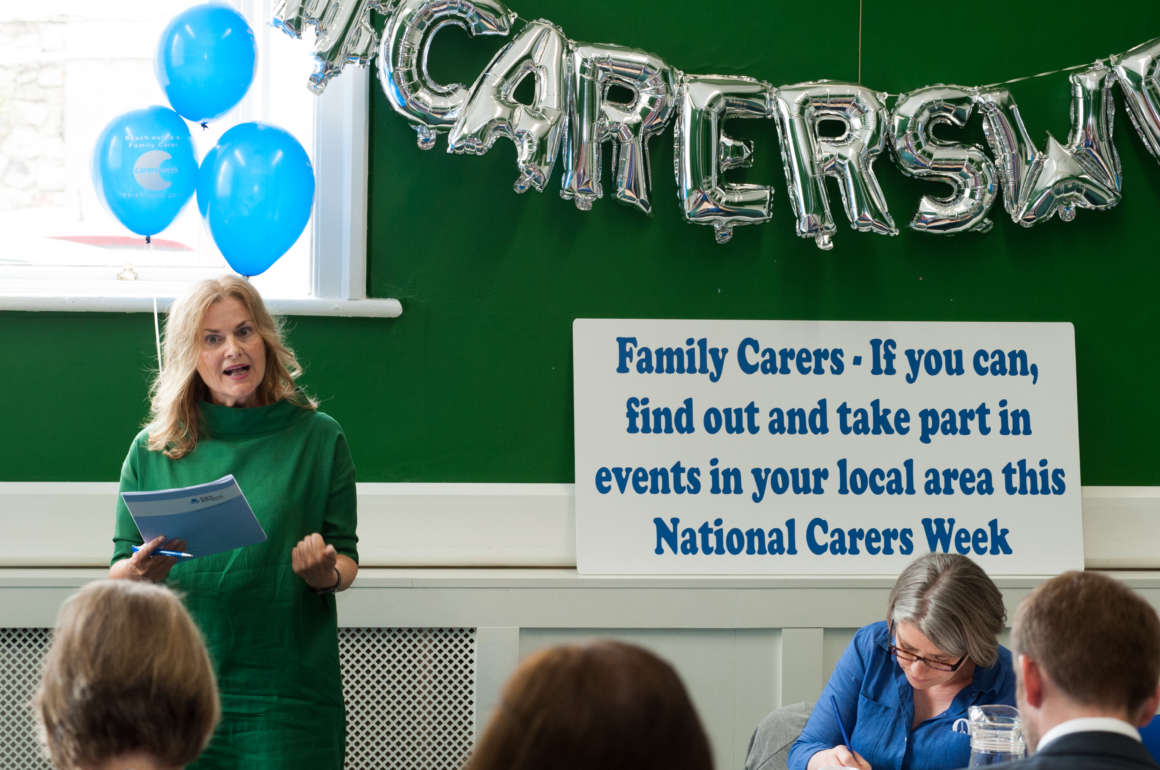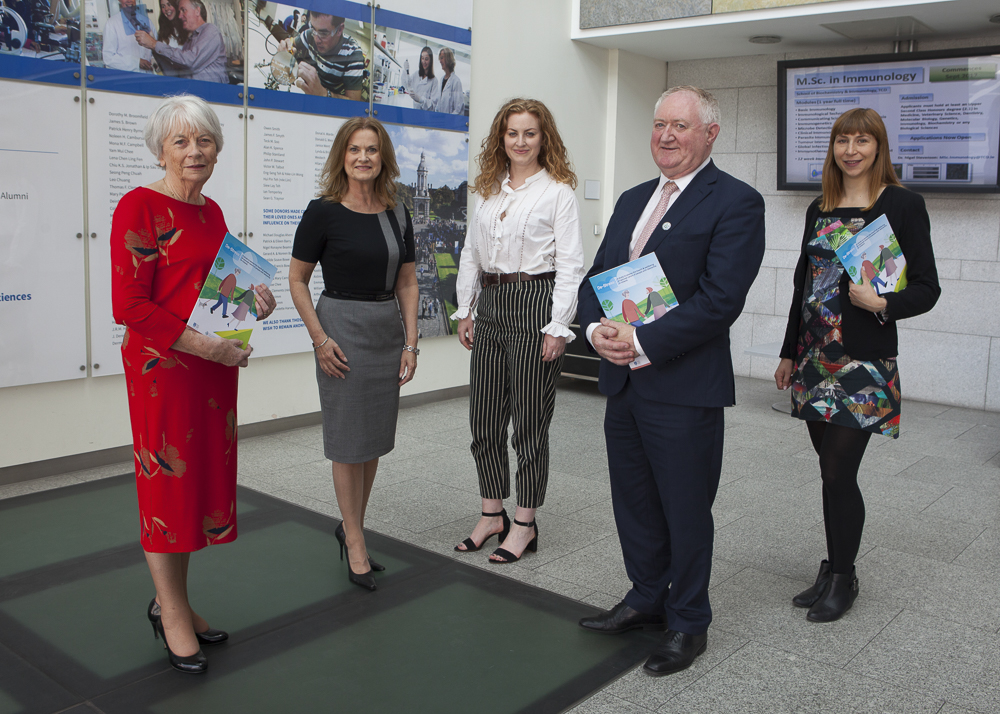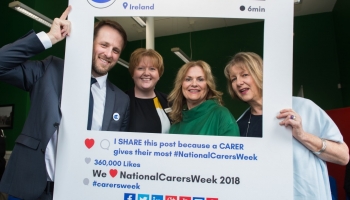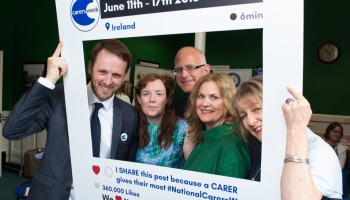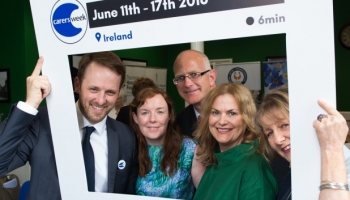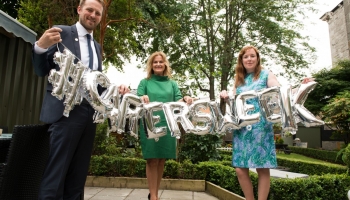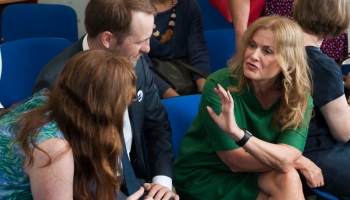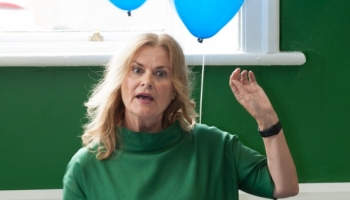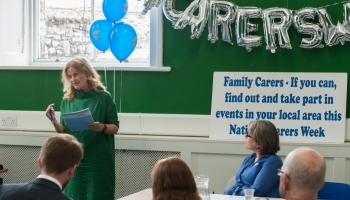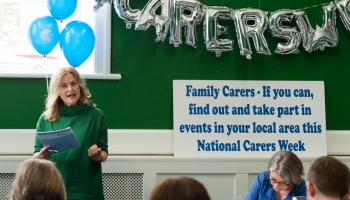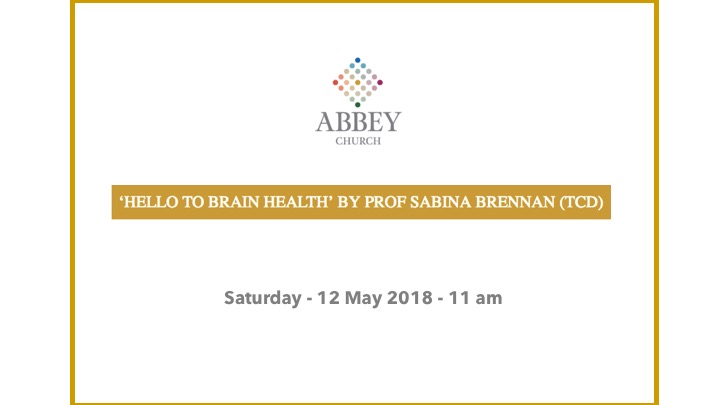I spoke at the launch of National Carer’s Week in Ireland – here’s what I said.
A good carer puts the person they care for first, and puts their own needs on hold – right? Wrong. It is so wrong.
On an airplane there’s a reason why we are told to put our oxygen masks on first, before helping others.
It makes sense, because you can only help others when you have access to oxygen.
As a carer, it is important to look after yourself by eating a balanced diet, exercising, and by getting a good night’s sleep.
Looking after your self as a carer is not selfish, it’s sensible.
When your needs as a carer are taken care of, then the person in your care will benefit too.
I can almost hear the carers among you screaming silently – how the hell can I do all that when I’m providing care all of my waking hours? Or how can I possibly find the time to exercise when I’m trying to balance caring with earning a living so that we don’t starve or so that we can keep a roof over our heads?
And that is why we need more supports for carers. We need state support, including financial support, and professional care support to share the care load and to give us respite but we also need support from friends and from family.
We recently conducted a study (DeStress) at Trinity College Dublin with the Alzheimer society of Ireland. While the study assessed the health and wellbeing of 300 spousal carers of people living with dementia in Ireland I believe that our findings will resonate with most carers. You can read an easy-to-understand lay report outlining our DeStress findings in PDF format here.
• 50% of the carers in our study were aged between 65 and 74 and one quarter were over the age of 75.
• 79% reported that they themselves provided between 81% and 100% of the care for their spouse.
• Women more commonly provided this level of care than men.
• 48% reported spending all of their waking hours looking after their spouse
• 42% reported that they had not received any assistance or care from family or friends within the last 30 days.
• Women were less likely to receive caregiving help from family/friends than men
There is no denying that caring for someone you love can be a rewarding experience. However it can also be stressful and can put you in a lonely place. To provide the best care for their loved one the individual providing the care needs to stay healthy and connected. To do that they need family and friends who can provide social and emotional support.
While help with housework or care-related tasks is often welcome there is another (and perhaps even more important) way to help. Just be there. Visit, have a chat with the caregiver and be a listening ear for them.
Your friendship and your emotional support could be like a breath of fresh air, or vital oxygen for the carer.
Our brains thrive on positive social connections and social intimacy. Research shows that being lonely and socially isolated mean we are at greater risk of depression, anxiety, dementia and age-related cognitive decline, which can affect our memory.
In our DeStress study we found that depression and anxiety were common among carers.
37% of carers reported clinically significant depressive symptoms and a further 40% reported levels of depressive symptoms that were not clinically significant. About 35% reported anxiety symptoms.
Nearly 60% of carers had visited a health care professional at least once in the past 30 days on account of their own health. It was very common (71%) for carers to have two or more health conditions or diseases at once, the most common being arthritis, hypertension (high blood pressure), and diabetes. Three-quarters of carers were overweight (46.4%) or obese (30.6%) putting their physical and brain health at risk. Almost a third of carers reported fairly bad sleep quality which has knock on effects on health and indeed on memory.
But there is the better news – just being able to chat with trusted friends can make us feel connected and help us to avoid loneliness. Social interaction can help tackle those feelings of loneliness and has an added bonus of boosting your health.
Studies have shown that lack of affectionate physical contact is associated with higher levels of stress hormones. But social contact, like giving someone a hug or holding their hand can lower stress hormones and even lower blood pressure and reduce pain.
If you are the caregiver, when a visitor calls make sure that you make time to enjoy the visit yourself – have a chat with them. And remember that smiling has health benefits too. Take 2 minutes to watch the animation below.
https://youtu.be/tUpKoVoH6ZQ
I’ve created some more resources for carers which you can find at www.hellobrain.eu/carers
We need to recognise and support the role of carers. Caring is an undervalued profession. Carers need to be trained and well paid. We need specially trained carers for people with neurodegenerative diseases and neurological conditions so that functioning can be optimised and health maximised.
We wouldn’t dream of putting our loved ones in a hospital or care home with no trained staff – yet most carers are expected to look after often very complex conditions – particularly neurological or neurodegenerative conditions – not only without training but without any understanding of the condition itself but also with almost no understanding of how the brain works and how a brain disease or brain injury affects behaviour mood and the ability to understand or communicate needs. Even providing some training and knowledge in this regard would improve the lives of both the carer and the person being cared for.
In our study only 1 in 4 full-time carers had received training. That has to change. The Alzheimer Society of Ireland offer Family Carer Training which you can read about here.
We need to support informal carers (e.g. pay them, facilitate career breaks, provide training) and we need services to support and optimise carer health).
I believe that the caring role is undervalued in part because historically it was seen as women’s work, something that women are expected to do. I believe that removing the ‘women in the home’ clause from the constitution and replacing it with a clause that affirms the value of the caring role while incorporating a broader definition of the caring role to include men and dependents other than children. When arguing for supports, funding and tax breaks I believe that we should be inclusive, we need to advocate for improvements to support not only those who care for children but also those who care for adults, parents siblings and even friends.
The men in my life, my husband, my sons and my son-in-law, played a very active role in caring for my mum and did many things far better than I could ever have done.
My husband was fantastic with my mother and did so many amazing things for her both before and during her illness. I am eternally grateful to him and I believe that my mother now in eternity loved him deeply and appreciated all that he did for her.
I believe that big changes come about when lots of people do little things. Start during National Carer’s Week by reaching out to a carer – but don’t confine your support to Carers Week which runs from June 11th to 17th – you can make a big difference any week or even every week. Thanks to Liam O’Sullivan, Executive Director of Care Alliance Ireland for inviting me to speak at the launch.


